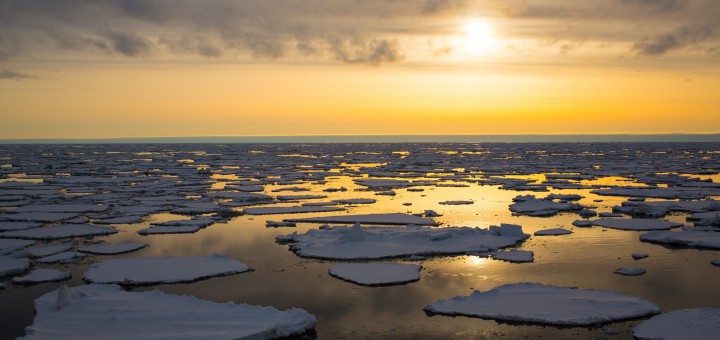by Ven. Bhikkhu Bodhi
With atomic scientists’ “Doomsday Clock” two minutes closer to midnight and a report from the National Climatic Data Center confirming that 2014 was the hottest year on record, Congress is trying to move us closer to ecocide. Reversing course will require urgent, concerted action.
On January 22, the Bulletin of Atomic Scientists announced that it had moved the minutes hand of its “Doomsday Clock” ahead two minutes, from five minutes before midnight to three minutes before midnight. The clock envisions the life span of human civilization as a period of 24 hours. Thus when scientists decide to move the minutes hand ahead by two minutes, this means that they consider us to be drawing closer to the end of our time. With only three minutes left, we don’t have much leeway.
The analogy, however, is not perfect, for there’s an important difference between a real clock and the Doomsday Clock. A real clock, as long as its batteries are working, will always move forward, from second to second and minute to minute. The Doomsday Clock, in contrast, does not have to move forward, for apart from its astrophysical constraints, human civilization is not rolling along a one-way track toward some predestined end where everything comes to a stop. The minute hand on the clock of civilization could well stand still, or indeed even move in reverse, from the danger zone back toward safety. We can, perhaps, delay our final dénouement and flourish – even for many more centuries.
The hand has not moved forward because a giant meteor is about to crash into Central Europe, or because a ring of volcanoes is due to erupt from France to Siberia, or because alien invaders from a distant galaxy are about to land in the American Corn Belt. No, the hand of the clock has moved forward, from five minutes to three minutes before midnight, because of human activity itself. It has moved forward because of bad choices, programs and policies imposed by those at the wheels of power.
Continue reading →




 On June 18, Pope Francis issued an encyclical letter,
On June 18, Pope Francis issued an encyclical letter,  The Indian state of Uttarakhand, in the lower Himalayas, holds the fifteenth rank in agriculture in the country. Almost 88% percent of the land holdings come under the small and marginal category, which is about 55% of the area under cultivation. In the past three years, Uttarakhand has received less-than-normal rainfall, which has affected crop production and adversely impacted the livelihood of the almost 78% of the State’s population dependent on agriculture.
The Indian state of Uttarakhand, in the lower Himalayas, holds the fifteenth rank in agriculture in the country. Almost 88% percent of the land holdings come under the small and marginal category, which is about 55% of the area under cultivation. In the past three years, Uttarakhand has received less-than-normal rainfall, which has affected crop production and adversely impacted the livelihood of the almost 78% of the State’s population dependent on agriculture.